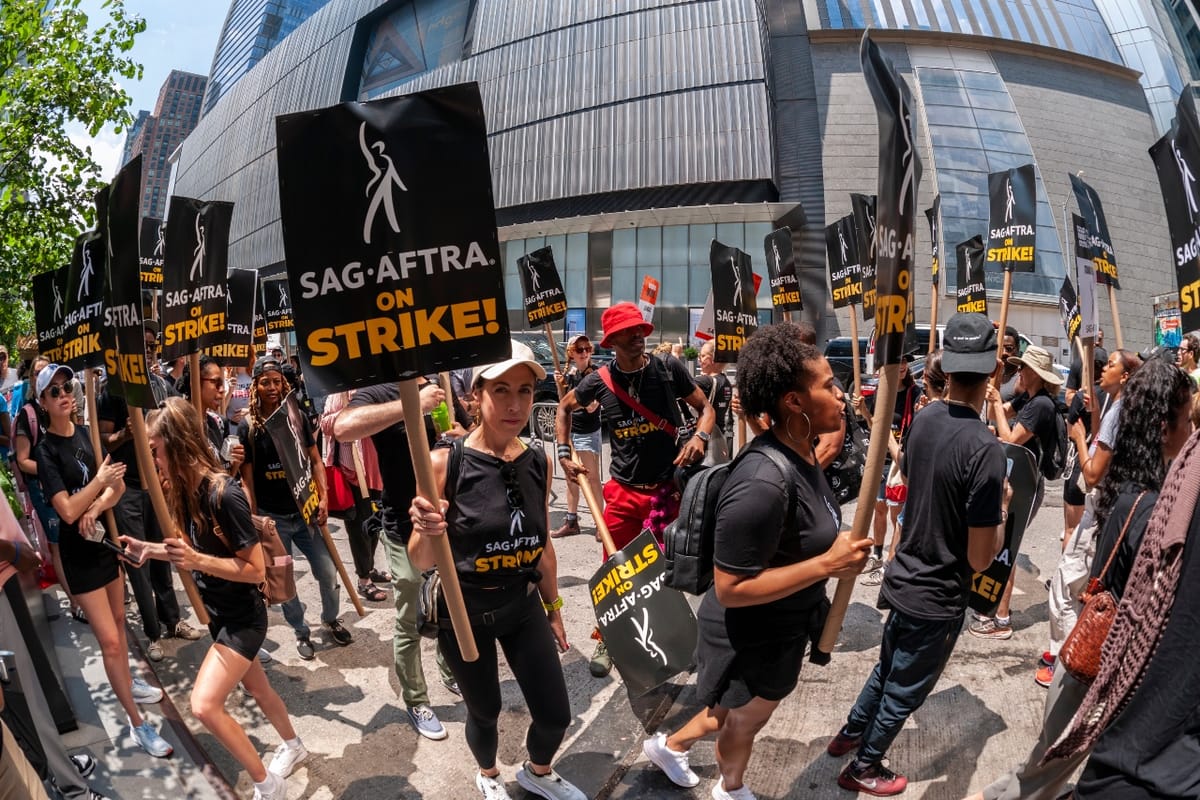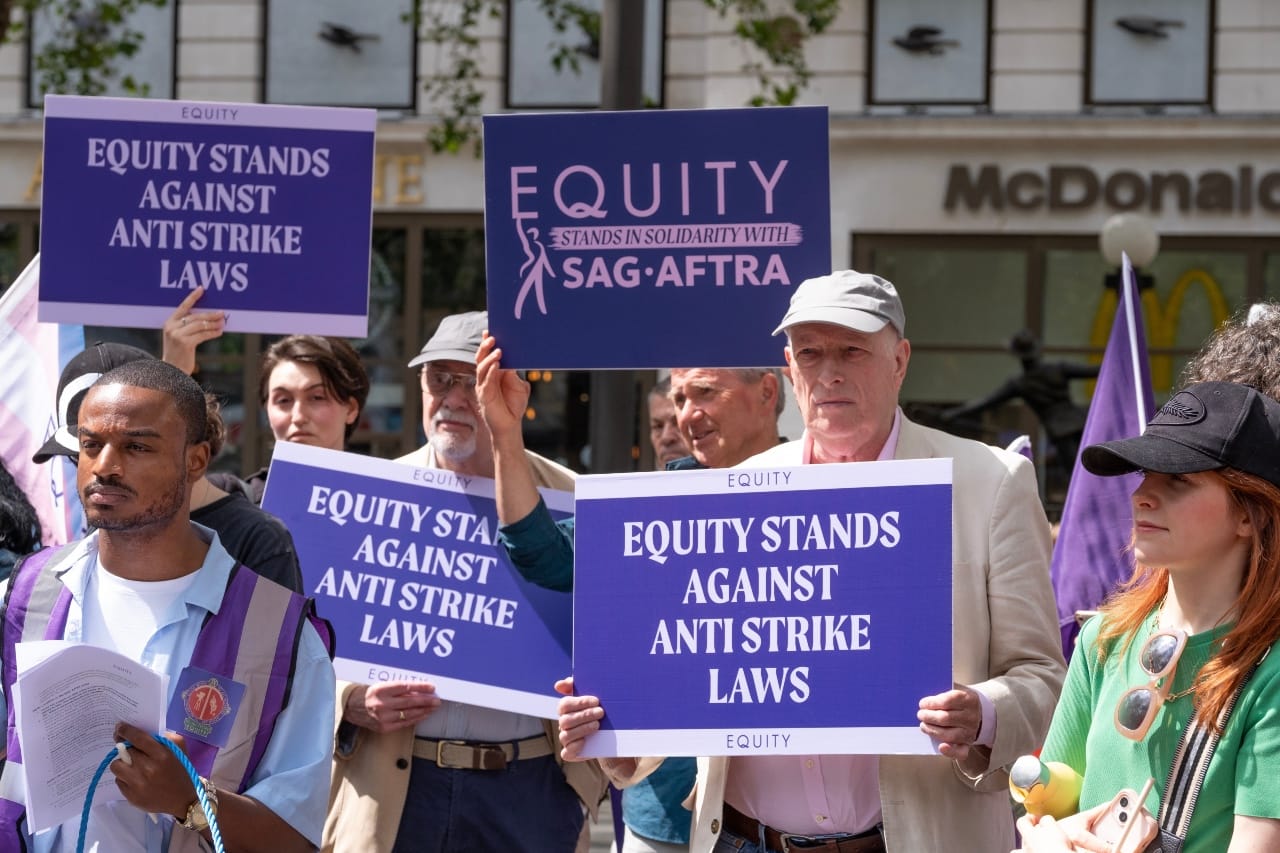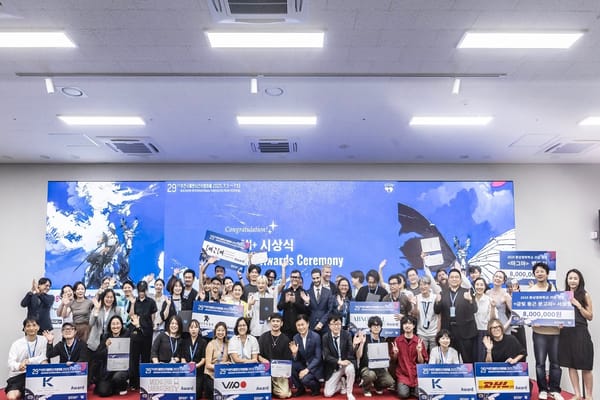US Strikes Impact On International Production: Whose Stories Are We Telling Anyway?

So there I was thinking that Streamlined could safely take a few months off over the summer – nothing big was likely to happen; instead of which Hollywood has gone on strike, the world is on fire (not in a good way), and a brilliant marketing gimmick has convinced everyone to visit the cinema twice in one weekend. In many countries, at least in Hong Kong where I am right now, the thought of spending a combined five hours in an air-conditioned space where you don’t have to pay the electricity bill would be attractive even if they were showing re-runs of every film in the Transformers franchise. Movie marketers take note – climate change could be your best friend.
But while the blanket coverage of ‘Barbenheimer’ and the SAG-AFTRA and WGA strikes would have us believe otherwise, life is continuing much as normal in most of the world’s entertainment industries. Here in Asia, there will be limited disruption to the autumn film festival circuit and production schedules. Very few Asian festivals rely on Hollywood stars to draw audiences and sponsors (although the big Gulf festivals such as Red Sea are perhaps a different story). And while a growing number of Asian countries have introduced cash incentives to draw Hollywood and other international production, very few have so far attracted a large volume of shoots.
The big exception is Thailand, and looking at current events in Bangkok, we can see some of the potential pitfalls in becoming too dependent on Hollywood production (not that Thailand is in that position yet, as noted below). Noah Hawley’s Alien series was less than a week away from the start of production for Disney’s FX network when the SAG-AFTRA strike was called. The crew had been in pre-production for around four months and had booked out most of the sound stages, camera and lighting equipment in Bangkok.
If the production had been shut down, more than 400 Thai crew would have lost their jobs. And while Streamlined believes labour rights are a global issue, the Thai crew might have been justified in wondering, whether the US actors win or lose, would it make any difference to working practices in Thailand? Which guilds are fighting for Thai workers? And if the strike continues, will it make Thailand a more attractive destination for US studios looking to circumvent SAG and the WGA? Would that be a good or a bad thing for Thailand in the long run?
While these considerations may not have been top of mind for Disney and FX, the producers of Alien chose to rejig schedules and start shooting last week with their non-SAG cast. It’s unclear how long they can continue, or whether the production will need to be put on hold at some point, as the strikes don’t look like they’re going to be resolved any time soon. Other US productions set to shoot in Thailand, including Season 3 of The White Lotus, are on hold as a result of the strikes.
Australia and New Zealand, which both offer generous cash incentives and have become major offshore production centres for Hollywood, have also been impacted. In Australia, Apple TV+’s big-budget Metropolis series was shut down by the WGA strike, while Mortal Kombat 2 and Peacock series Apples Never Fall are on hold due to the SAG action, along with Minecraft starring Jason Momoa in New Zealand.
While local production in both countries can carry on regardless, sharing a language with the US means that many projects involve SAG cast, and while these actors can in theory work on Australian or New Zealand productions under local contracts, questions remain over whether they’d want to do that given the optics.

Of course, both countries are developed nations with robust production infrastructures, and while they’ll suffer short-term pain, will survive the fallout. But these forces impacting the global content industry are likely to raise more questions about government policy regarding cash incentives and attracting international production, questions that other ‘offshore’ production hubs such as the UK and Canada are also asking.
What the strikes have done is bring into sharp focus what we kind of already knew – that the global production boom that has been sweeping the world since the dawn of the streaming era was never really sustainable in the long run. And that there are worrying fault lines in business models of the US conglomerates that control Hollywood and the US entertainment industry.
As in so many other sectors, these fault lines are the result of legacy industries following the tech industry down its rabbit hole of ceaseless customer acquisition at the expense of the bottom line, not to mention the focus on shareholders and stock market valuations, rather than consumers and the workers who get the product they’re selling made. The high-end television bubble was always going to burst – if it wasn’t the pushback from labour, it would have been pressure from Wall Street to stop over-spending, or massive consolidation through mergers and acquisitions reducing the overall number of platforms.
But whatever it was that finally did the popping, here we are, and even when the strikes are resolved, which could take several months, the deeper problems in the US media and entertainment conglomerates will remain. Industry leaders and government policy makers around the world need to consider how to respond.
There is of course truth in the Hollywood lobby’s arguments that tax incentives and inbound production result in inward investment, job creation, training and the upgrading of rapidly developing and otherwise prohibitively expensive production technologies. Australia, which recently increased its incentives to 30%, could also argue that the move leads to a steadier pipeline of production, which keeps Australians in work, and discourages them from relocating to Los Angeles when the pickings are slim.
But it’s a question of balance. The big problem in two of the busiest offshore production centres during the production boom – Australia and the UK – has been how the influx of Hollywood shoots has sucked up resources and driven up costs, effectively squeezing out local and independent production. Everyone was working, from writers, directors and actors to below-the-line crew, but a diminishing proportion of them were working on telling British or Australian stories.

Again, this is partly related to the shared language issue – Thailand still has a thriving Thai-language production industry, despite servicing Hollywood productions. There’s probably less scope for a Thai cinematographer to up sticks and move to LA when the Hollywood work dries up. But production ecosystems are fragile, and Thailand’s local industry could also be impacted if too much emphasis was placed on inbound production rather than developing a self-reliant local industry.
Most countries know this and at least pay lip service to the sensible strategy of supporting local production, at the same time as developing incentives for international production, while carefully considering the sustainability of the industries that the offshore work is coming from. But it’s easy to get dazzled by a huge influx of cash. During the global production boom, the UK, and to an extent Australia, started to lose their sense of balance. Pitching international territories against each other in a global arms race to see who can throw the most taxpayer money at Hollywood is not necessarily a healthy situation.
There cannot be a blanket response to these questions as production industries around the world are at very different stages of development and require very different solutions. Investing heavily in infrastructure for work that departs the moment a richer nation comes along with a bigger incentive could cause more harm than good. What works for Australia, the UK or France in terms of incentives and production attraction could crush a developing production ecosystem like Mongolia or Vietnam.
We talk about film and TV as being an increasingly globalised industry, and that may be true, but we don’t talk enough about how the world is not a level playing field and some countries may have other spending and development priorities.
Of course, it’s also true that a large proportion of the local-language production currently taking place across Asia is financed by US companies, in particular Netflix, Disney and Amazon. But that is a whole separate issue from inbound production and one that Streamlined aims to look at in future.
THIS SUMMER IN THE TRADES:
LAB & FUNDING NEWS:
Busan Film Festival’s Asian Cinema Fund Announces Support For 14 Projects
‘Passport’, ‘Please Bear With Me’ Win Prizes at BIFAN’s NAFF Project Market
Full Circle Lab Set For Second Indonesian Edition In September
PRODUCTION NEWS:
Netflix Signs Five-Year Collaboration With Cannes Best Screenplay Award Winner Yuji Sakamoto
Jia Zhang-ke Sets ‘We Shall Be All’ as First Feature Project in Five Years
Park Chan-wook-Produced ‘War and Revolt’ Set at Netflix
Thailand’s Pen-ek Ratanaruang Reteams With Christopher Doyle for Culinary Thriller ‘Morte Cucina’
Jefferson Hall Unveiled As Lead Actor In Emirati Director Nayla Al Khaja’s MENA-Set Thriller ‘Three’
Luke Evans, Gwei Lun-mei to Star in Taipei-Set Action Thriller From Europacorp
CORPORATE:
Canal+ Takes 26% Stake In Leading Asian Streamer Viu; Talks Growth & Content Collaboration
Alibaba Group In Succession Shake-up: Joe Tsai To Become Chairman; Eddie Wu Appointed CEO
China’s Wanda Group Sells Stake To Film & TV Producer Ruyi Holdings To Pay Down Debt
Imax Spending $124 Million to Buy Full Control of China Subsidiary
Sony Taking Indian Regulator Order Over Planned ZEE Merger “Very Seriously”
CJ CGV, Korean Cinema Exhibition Giant, Seeking $800 Million Capital Injection
CANCELLED:
‘Barbie’ Banned In Vietnam Over Map Showing China’s Claims In South China Sea
Hong Kong’s Fresh Wave film festival hit by censorship
CURATED: FESTIVALS UPCOMING
Locarno unveils 2023 line-up including premieres from Radu Jude, Lav Diaz and Sofia Exarchou
Venice Film Festival reveals 2023 line-up
Toronto Sets Hayao Miyazaki’s ‘The Boy And The Heron’ As Opening Film
San Sebastian unveils New Directors titles in the running to win €50,000
CURATED: FESTIVALS PAST:
‘Diamond Marine World’, ‘Eye Of The Storm’ Win Big At Taipei Film Awards
BIFAN Hands Top Prizes To Chile’s ‘Sorcery’, Korea’s ‘Iron Mask’
Morocco’s ‘The Mother Of All Lies’ wins top award at Sydney Film Festival
Japan’s ‘Yoko’ Wins Three Prizes At Shanghai Fest
RELEASED:
China box office surges 52.9% in first half of 2023, boosted by ‘Lost With The Stars’
SOLD:
Anthony Chen’s ‘The Breaking Ice’ Acquired By Strand Releasing for North American Distribution
Kino Lorber Takes Cannes Camera d’Or Winner ‘Inside the Yellow Cocoon Shell’ for North America
STREAMING UPDATES:
CJ ENM appoints former Disney+ executive to lead streamer TVING
Gideon Khobane Joins Amazon as Director for Prime Video Africa
Disney+ Hotstar Retains Indian Streaming Market Lead Despite IPL Cricket Loss — Study




